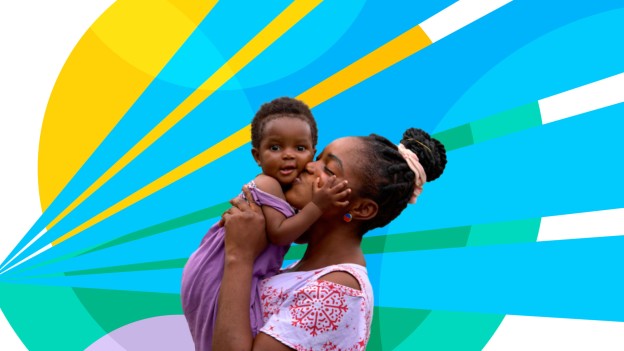Background Information:
World Immunization Week is celebrated every year from 24 to 30 April.
Essential Programme on Immunization
- Initiated in 1974 by WHO, the Essential Programme on Immunization (EPI) is found in every country on the globe, and aims to ensure universal access to life-saving vaccines. Its goal is to safeguard individuals of all ages through comprehensive immunization efforts. It has the farthest reach and deepest impact of any public health programme.
- The programme has evolved, starting with vaccines against six childhood diseases and now encompassing 13 vaccine preventable diseases, demonstrating its adaptability and success.
- At its inception in 1974, the EPI focused on protecting all children against six childhood illnesses and against smallpox, but today, this number has grown to 13 universally recommended vaccines across the lifecourse, and 17 additional vaccines that are used in some but not all countries, because the diseases are not priorities everywhere.
- The programme has also contributed to injection safety, improvements in the cold chain, data systems and creating more sustainable health facilities. Robust vaccine supply chains and global expansion of vaccination programmes through EPI have helped to ensure that vaccines reach even the remotest areas where people.
- EPI involves public-private partnerships including WHO, Rotary International, CDC, UNICEF, the Gates Foundation, the World Bank, Gavi and many NGOs and CSOs in support of country programmes.
- EPI marks its 50th anniversary in 2024, an opportunity to celebrate achievements and set new ambitions for the future.
Key Messages:
Vaccines are one of humanity’s greatest achievements. In the last 50 years alone, they’ve saved 154 million lives – that’s more than 3 million lives a year or six people every minute for five decades.
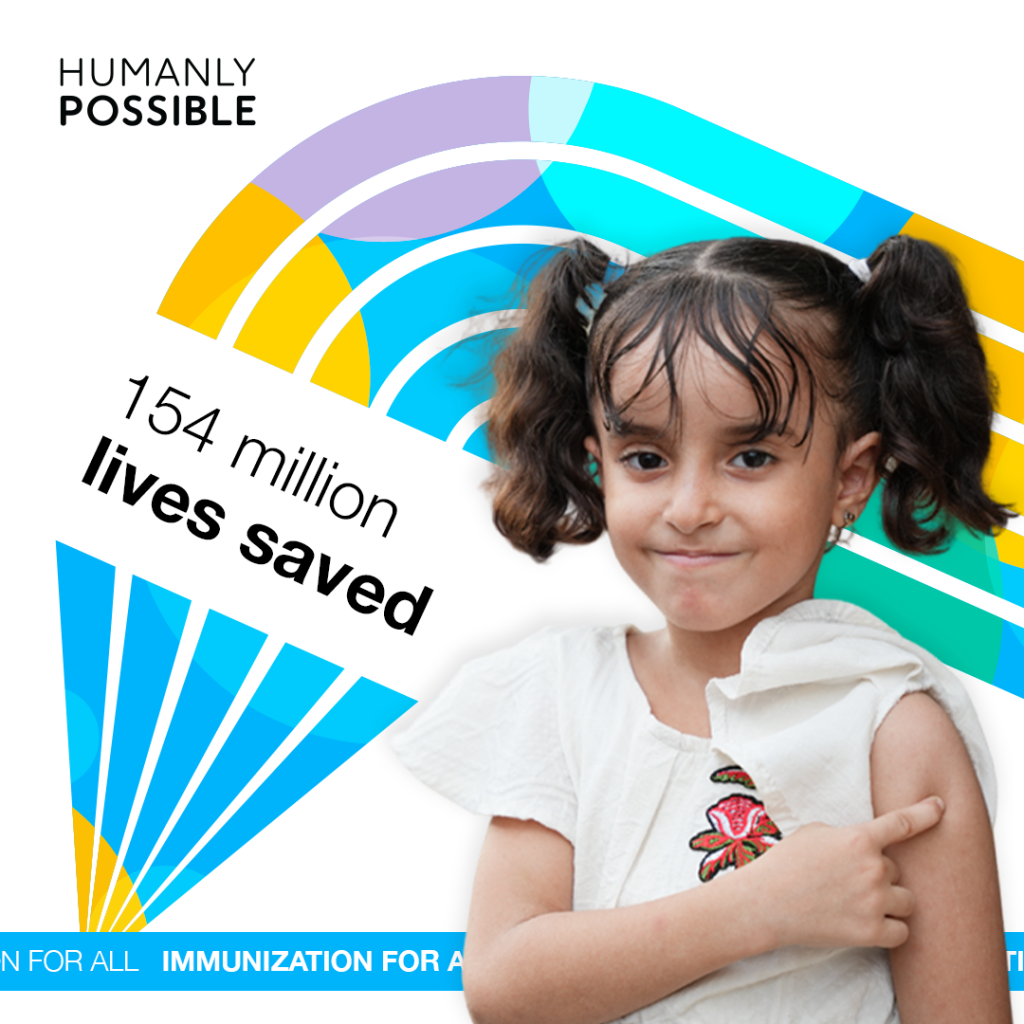
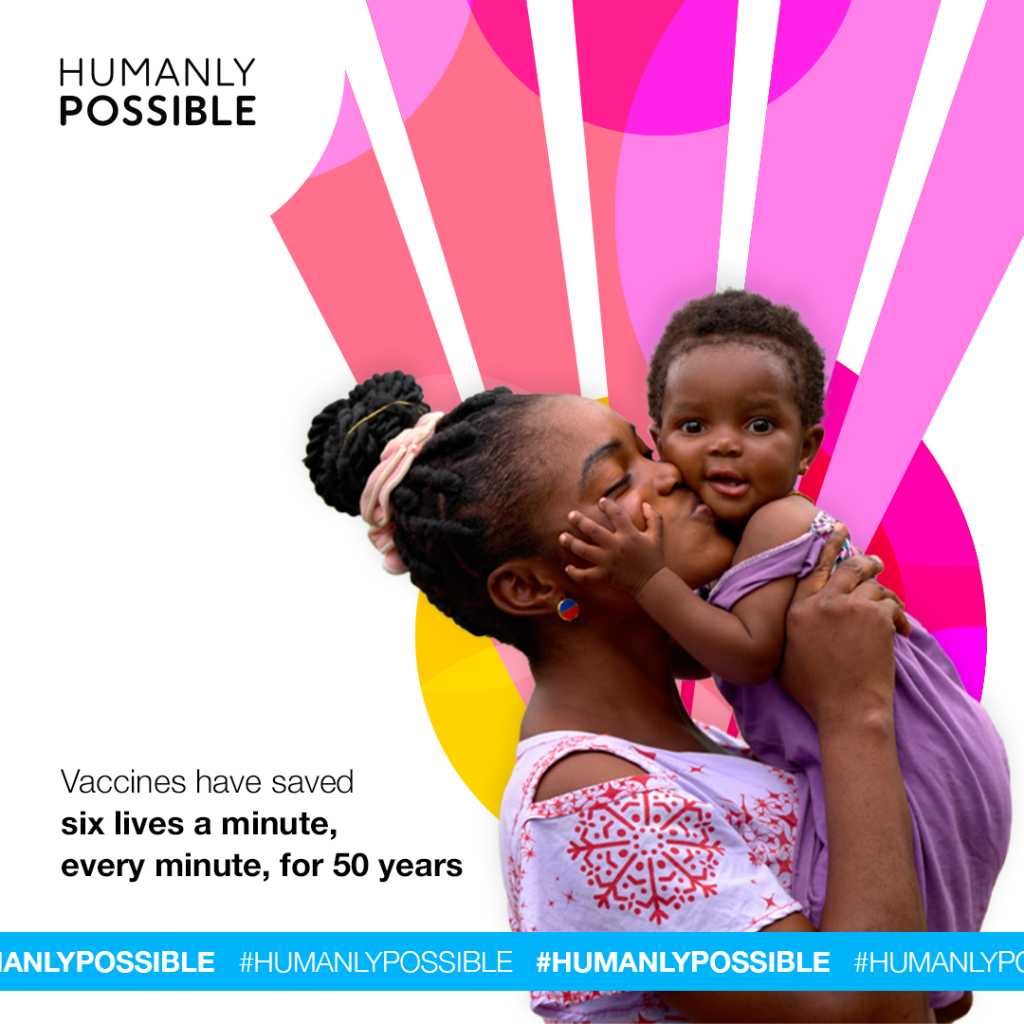
In the same period, vaccination has reduced infant deaths by 40 per cent; more children now live to see their first birthday and beyond than at any other time in human history.
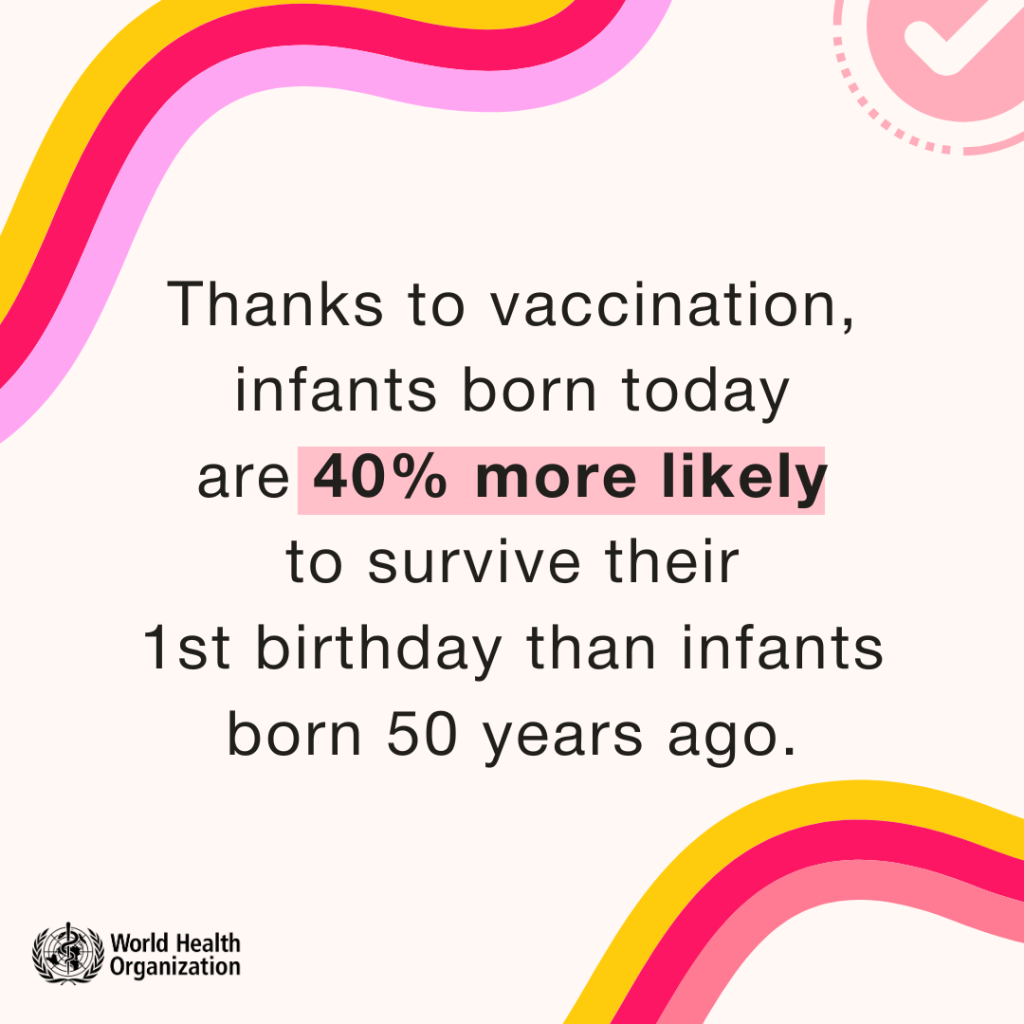
This success was built on cooperation. Much of this success was achieved through heroic immunization drives spearheaded by governments and the United Nations, with the help of scientists, healthcare workers, civil society and volunteers. These drives led to the eradication of smallpox and the elimination of two out of the three strains of polio –– a triumphant demonstration of what science, determination and international cooperation can do.
The WHO recommends 13 universal immunizations across the lifecourse to defend against deadly illnesses, from pneumonia to diphtheria to measles to rubella. These vaccines, along with the global drives to ensure everyone receives them, are known as the Essential Programme on Immunization (formally, the Expanded Programme on Immunization).
Getting vaccinated helps save lives. Every person who gets vaccinated not only gets protected from a number of serious illnesses but also contributes to worldwide herd immunity, preventing the spread of illnesses to those who did not receive their immunizations, either because of compromised immune systems or lack of access to vaccines.
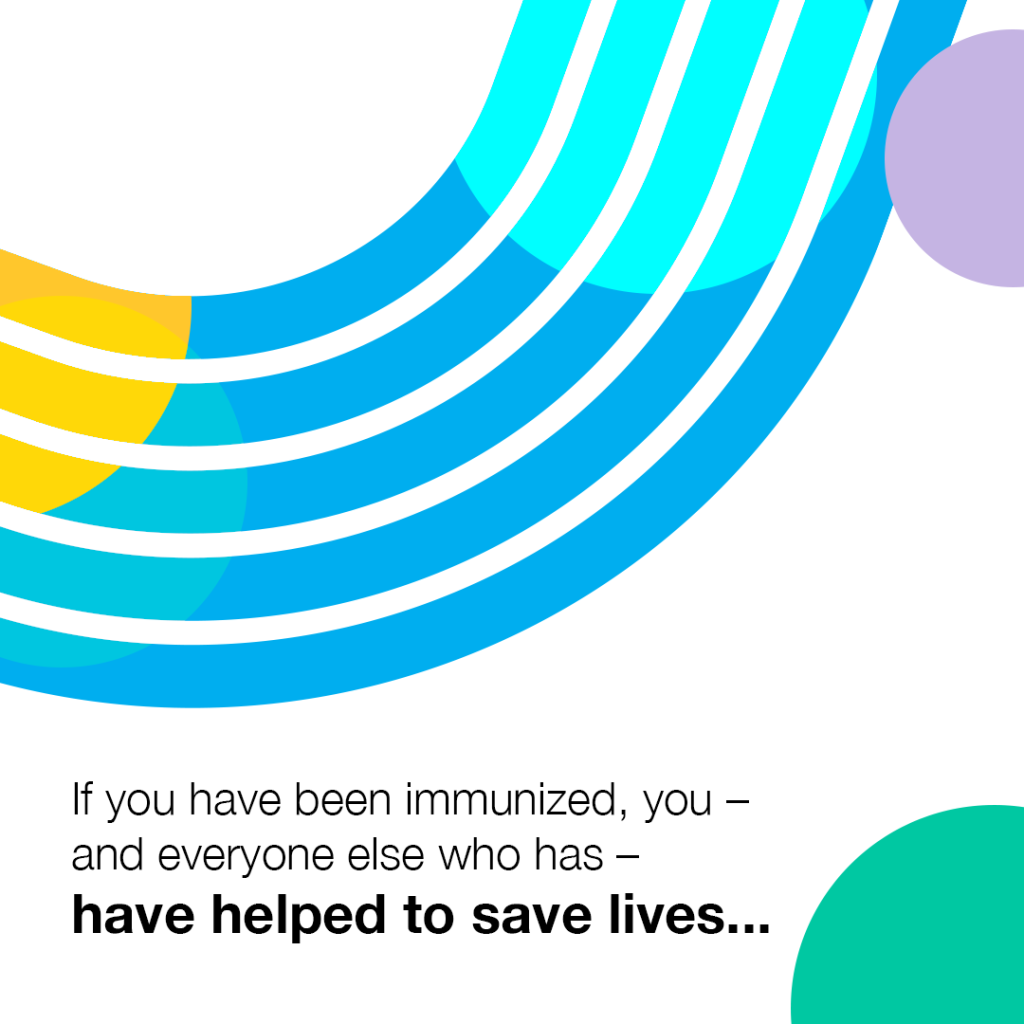
By continuing to invest in vaccines, we can help build a world where fewer children than ever die of preventable illnesses. We can also set the stage for a healthier future, one where the HPV vaccine helps eliminate cervical cancer; where we can vaccinate against HIV; and where polio is wiped off the map for good.
Vaccines are one of the smartest human achievements. They are proof that anything is humanly possible when we put our minds to it. In 2024, let’s unite to protect this incredible progress and ensure the next generation of children remains safe from disease.
Immunization campaigns have enabled us to eradicate smallpox, nearly defeat polio, and ensure more children survive and thrive than ever before.
This year World Immunization Week will celebrate 50 years of the Expanded Programme on Immunization (EPI) – recognizing our collective efforts to save and improve countless lives from vaccine-preventable diseases and calling on countries to ramp up investments in immunization programmes to protect the next generations.
In just 5 decades we went from a world where the death of a child was something many parents feared, to a world where every child –– if vaccinated –– has a chance to survive and thrive.
A world with immunization for all? That’s Humanly Possible.
Useful Links:
Link to World Immunization Week site:
https://www.who.int/campaigns/world-immunization-week/2024
Link to Questions and Answers to common myths and misunderstandings about vaccination:

